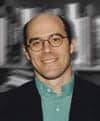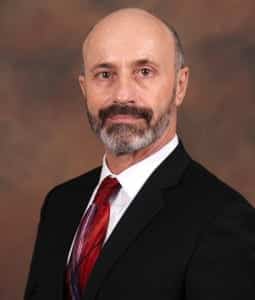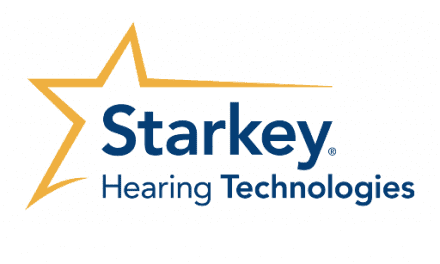Staff Standpoint | October 2019 Hearing Review
Introduction to Special Issue on Unilateral Hearing Loss
Decades of research have proven why binaural hearing provides a wealth of acoustic benefits unachievable with monaural hearing. Better speech perception in noise, binaural summation, localization, and several other factors put an exclamation mark on why hearing with two ears is better than one.
In this special edition of The Hearing Review, guest-editor Douglas Beck, AuD, has assembled an exceptional editorial package about unilateral hearing loss (UHL) in its many forms. Dr Beck and I have worked together for more than two decades, and I’ve come to appreciate his in-depth expertise in a variety of audiology disciplines, including as a researcher of cochlear implants and intraoperative cranial nerve monitoring at House Ear Institute, Director of Audiology at Saint Louis University, co-owner of a private practice, and now Executive Director of Academic Sciences for Oticon. He has also served as online editor-in-chief for the American Academy of Audiology (AAA), AudiologyOnline.com and HealthyHearing.com, and now is senior editor of clinical research for HR’s Inside the Research column, which spotlights stellar research and reviews published works in our field.
This month’s special issue on UHL starts off with Dr Beck and Virginia Ramachandran, AuD, PhD, explaining UHL, its etiology and effects, available treatment pathways, and why CROS/BiCROS hearing aid fittings may not always be as effective as we would have hoped. A world expert in pediatric audiology, Anne Marie Tharpe, PhD, on page 18 describes the implications and treatment options of UHL in children and makes it clear that we still need research in this area of audiology. The special issue wraps up with two Tech Topic articles: Suzanna Løve Callaway, AuD, and Pernille Aaby Gade review a new technology that involves a CROS/BiCROS solution with dual-streaming and an open sound paradigm, while Amanda O’Donnell, AuD, and Allison Racey, AuD, explore the expanding options in cochlear implant and bone-anchored solutions for UHL patients.
Earlier this year, James Galloway, MSc, and his colleagues at the National Acoustic Laboratories (NAL) in Sydney, Australia, published “The Impact of Unilateral Hearing Loss on Adult Life,” the HR April 2019 cover story which underscores the need for improved awareness and understanding about the impact and struggles of people who have UHL. In their research, the people with UHL cited problems with listening in noise and localization, mental fatigue, fear and anxiety, self-esteem and reduced social activity, missing important information, stigma in the workplace, and various maladaptive coping strategies. Additionally, a group of researchers that included Dr Tharpe and the Pediatric Research Advisory Board for Phonak forged a consensus statement on UHL in children that was published in the September 2019 edition of the International Journal of Audiology.
On a personal note, my 16-year-old son has recently been experiencing a spate of ear infections that have only been sporadically resolved with antibiotics and watchful waiting. Effectively, it has saddled him with (at least) a UHL for the past 4-6 months and given me greater insight into its significant effects—plus jogged long-lost memories of my own struggles in this realm since I had the exact same problem (ie, wicked ear infections at an unusually older age). Hearing loss at any time in your life makes it difficult to communicate with your peers and can easily lead you into embarrassing situations. In the formative teen years, the problem can be magnified. Academically, unless you sit in front of the class (which my son now does, but I didn’t), you can miss a lot of things your teacher says—which, at 16, doesn’t seem to be as big a deal as it really is. In my son’s case, I notified his teachers and principal about his hearing problem, and all were very accommodating; I also received immediate responses from the district educational audiologist and special services coordinator.
As hearing care professionals and experts who know why two ears are better than one, we should make sure to advocate that better health includes hearing as well as possible from both ears.
Other articles in the October 2019 Hearing Review special edition on unilateral hearing loss:
- Introduction to Special Edition: Unilateral Hearing Loss: Underappreciated, Undertreated, By Karl Strom
- Contralateral Routing of Signal: A Status Report 2019, By Douglas L. Beck, AuD, and Virginia Ramachandran, AuD, PhD
- Unilateral Hearing Loss in Children: Current Perspectives, By Anne Marie Tharpe, PhD
- A New Dual-Streaming CROS/BiCROS Solution, By Susanna Løve Callaway, AuD, and Pernille Aaby Gade
- Managing People with Sensorineural and Conductive Unilateral Hearing Loss and Single-Sided Deafness, By Amanda O’Donnell, AuD, and Allison Racey, AuD
Also see:
- The Impact of Unilateral Hearing Loss on Adult Life, By James Galloway, MSc; Vicky Zhang, PhD; Vivienne Marnane; Sanna Hou, MClinAud; Greg Stewart, and Fabrice Bardy, PhD
About the author: Karl Strom is editor-in-chief of The Hearing Review and has been reporting on hearing healthcare issues for over 25 years.
Citation for this article: Strom KE. Unilateral Hearing Loss: Underappreciated, Undertreated. Hearing Review. 2019;26(10)[Oct]:6.






